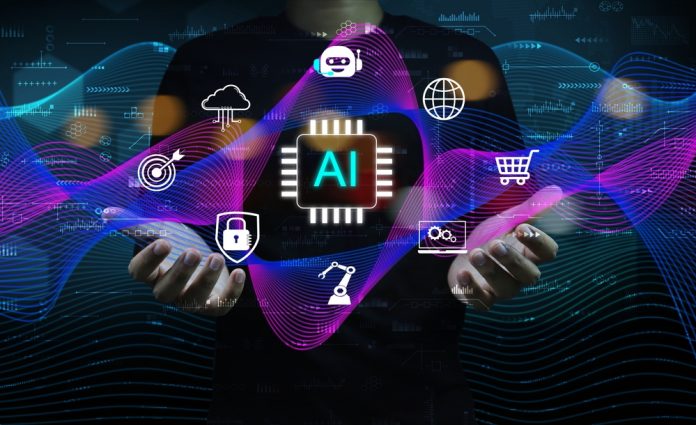
B2B sales has changed. Today’s B2B buyers prefer to navigate the purchasing process themselves instead of being guided by a salesperson, choosing ‘rep-less’ interactions whenever possible. They demand convenience and ease of purchase and want the freedom to research vendors, read reviews, and compare products online on their own time.
According to research from Gartner, buyers spend only 17 percent of their time connecting with a seller. If the buyer is comparing multiple suppliers, they may spend only 5 percent or 6 percent of their time with any one sales rep.
Sellers are trying to reach customers whose bandwidth for new information is rapidly shrinking. Because buyers now discover and compare products without ever meeting with a sales rep, it’s more difficult to stand out or differentiate your product.
This means the way organizations communicate with their sales reps — and the way sellers communicate with buyers — must change. To thrive in a hyper-competitive world, sales teams need a hyper-powerful tool. This is where technology — such as artificial intelligence (AI) — comes into play.
Gain a Competitive Edge with AI-Assisted Readiness
AI-assisted readiness is a requirement if sellers are to connect with empowered buyers and close deals.
In sales, AI combines human intelligence and machine learning to create more intelligent buyer engagements. AI can analyze massive data sets to find patterns and behaviors that lead to more targeted sales training, improved coaching, and new opportunities — which is especially important in a world where sellers must learn to reach modern B2B buyers. This analysis is far greater and more accurate than a person can produce.
For instance, AI-powered tools such as conversation intelligence can spot moments in seller videos where practice is done correctly, as well as highlight areas in need of improvement. With conversation intelligence, which records, transcribes, and analyzes sales calls to generate recommendations, managers can focus directly on the improvement opportunities, rather than sifting through hours of recorded material. As a result, the distance between sales reps and success is closed with data-driven insights, giving managers the power to observe their entire team at scale.
AI transforms sales-related data into focused recommendations that better support sellers. Forward-thinking sales organizations must use AI to improve sales readiness and prepare sellers for the best possible outcomes with today’s buyers.
Here are five sales readiness goals and five ways AI gives sales reps a competitive advantage:
Goal 1: Make the Perfect Mix
Most sales readiness programs today feature a mix of courses, self-paced learning, in-person coaching, on-demand training, and peer/mentor shadowing. This combination provides reps with a holistic learning experience that equips and enables them in various ways. But getting a clear picture of what’s working well, what isn’t working, and what’s missing can be tough.
AI Edge: AI can provide data that managers can mine to validate sales learning effectiveness and pinpoint areas that need improvement. Take it a step further by deploying conversation intelligence to identify skill gaps, prescribe training to fix the specific behaviors that lose deals, and extract best practices for the entire team.
Goal 2: Offer Self-Paced Learning
Every rep learns differently and at varying speeds. Reps need the ability to access learning content when and where they need it and at their own pace, regardless of their learning preferences.
AI Edge: AI can deliver the right training at the right time, improving knowledge retention and engagement.
Goal 3: Refine Skills
Sales reps cannot improve performance without practice. Consistent practice is an effective component of onboarding to reinforce skills while reps are still processing new information. Reps need a way to practice making a cold call or delivering a demo in a safe space to hone their skills.
AI Edge: AI-powered sales training makes it easy for reps to practice and iterate delivery, identify specific skill gaps, and highlight incorrect messaging.
Goal 4: Deliver Feedback at Scale
Feedback is a two-way street, especially as new reps get ramped up during sales onboarding. Reps are often empowered to provide feedback on the training they just received, ask questions, and more. But sometimes, it’s challenging for managers to review each rep’s training progress and practice sessions and deliver targeted feedback at scale.
AI Edge: AI can deploy, manage, and scale training across the organization to achieve consistent results and improve productivity.
Goal 5: Measure Success
Knowing where reps stand on their training completion, comprehension, and engagement is essential for ensuring their productivity and continued success. But it can be challenging to keep track of a single rep’s training progress, let alone when there’s a large number of reps, each with their own needs and at varying skill levels.
AI Edge: AI can automatically track reps’ progress, making the path to sales productivity clearer for everyone — from new teammates to sales leadership.
Why AI-Guided Selling Is the Future of Sales
As the trend toward a self-directed buying process shows no signs of slowing down, AI-supported selling isn’t just good to have — it’s now a requirement. AI-guided sellers can better reach empowered buyers with a customized, engaging customer experience tailored to their needs.
B2B sales and sales management require the insight, analysis, and actions only AI-selling technology can deliver. Sales organizations that use AI will continue to grow and excel, while others will be left behind. Make sure you’re on the winning team.




